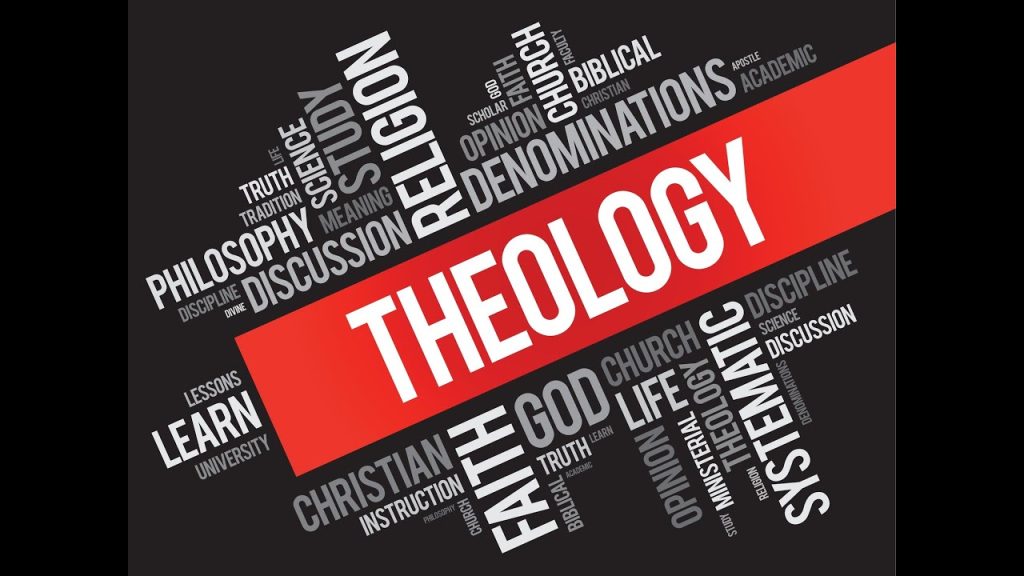The truth of God is not relative. It doesn’t change to adapt and conform to changes in the culture and beliefs of people. Much is made of the influence of relativism and a post-modern mindset. The concept that what’s true for you isn’t necessarily true for me.
Personal, philosophical beliefs don’t become reality just because they’re thought out to a conclusion. The natural laws of the earth and universe illustrate and reflect the unchanging nature of God, its creator, and His truth. Our philosophical worldview doesn’t change the truth or God.
Previously, I wrote a post titled “Got Theology?” The gist of it is that theology can become highly personalized. And yet, the truth of God remains unchanged. It’s based on who He is, not our opinions or a constructed belief system.
Christian believers need to be clear on why they believe what they believe. The trite saying—God said it, I believe it, that settles it—isn’t sufficient. It’s a cliché. Arriving at why we believe what we do—our theology—can be understood by seeing how we arrive at that belief. I won’t backtrack through what I shared in the previous post, but I want to look at a challenge I posed in that post.
The challenge involved three questions to help determine how our personal theology develops. As an example, I’ll answer these questions for my life. I’ll do this over the next three weeks. Hopefully, this will serve as a guide for you. Here are the three questions—
- Review your own life as a believer in Jesus—What stands out as most important and why?
- Who is the most influential spiritual leader in your life so far? Why?
- What’s been most helpful to you in your pursuit to know God?
My learning curve
I’m a visual and kinetic (experiential) learner who learns best by watching and then doing, and I’m also a reader. My search for truth and faith included the study of various philosophies and Eastern religions. I attempted to live these out to a certain extent as I read about them. Music and hitchhiking were also part of the process.
I also read the Bible each day for at least two years without understanding what I read. I talked about this in the first book I wrote. My life reflected the times of that search—the mid to late ’60s in America. I was immersed in the turbulent counter-culture that marked those years. This carried over to my faith search.
I’m a rebel at heart when it comes to learning. I don’t just accept things, I question, challenge, and then process it all. Of course, this doesn’t go over well with authoritarian teacher types. It even got me thrown out of a church when I kept pressing for answers.
During my search, I came to a turning point in my life. I went up into the mountains where I lived then and challenged God to reveal Himself to me somehow. I was expecting something like a sign in the sky, a burning bush, or an audible voice, but none of that happened. Discouraged, I headed back to my trailer.
Still wanting to hear from God, I opened my Good News for Modern Man version of the Bible to read. It was then I came across Matthew 7:13-14 and realized I was on the wrong path.
“Enter by the narrow gate; for wide is the gate and broad is the way that leads to destruction, and there are many who go in by it. Because narrow is the gate and difficult is the way that leads to life, and there are few who find it. (Matt. 7:13-14)
I took this as a challenge, but I refused to pray the “sinner’s prayer” in that paperback Bible or write down the date, as the notes in my Bible suggested. Like I said, I don’t just accept things without question. I did have an assurance in my heart that my faith search was settled. Jesus and the Bible were central to my faith and the foundation of my theology.
So, what about you? Have you had a turning point in your life, come to a crossroads, or another cathartic experience that settled your faith and brought assurance?
I believe this is an important first step in developing a personal theology. It’s called a lot of things—coming to faith, conversion, getting saved. Whatever you call it, it needs to happen. It’s the starting point of a settled faith, a personal trust relationship with God.
What stands out as most important in your life as a believer, and why is this so important to you?
Trip planted a church in the US and established two ministries overseas, along with many other ministry experiences. His ministry now focuses on discipleship and leadership development, while serving as a mentor to pastors and leaders with Poimen Ministries. Along with writing devotionals and simple Bible studies, he’s written books, Bible study guides, and training materials. Trip’s material can also be found at
@tkbeyond (on X)
@tripkimball (on https://substack.com/)




